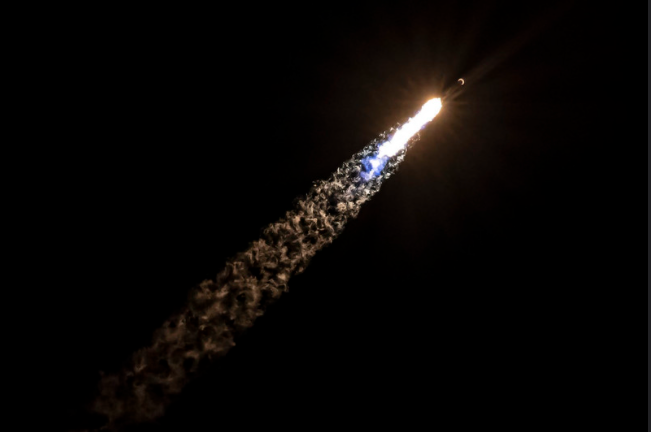Carr, the senior Republican on the FCC, claims that the agency exceeded its authority in denying RDOF funds to Starlink
FCC Commissioner Brendan Carr is criticizing the Federal Communications Commission’s action earlier this month that quashed nearly $900 million in Rural Digital Opportunities Fund (RDOF) subsidies that had been won by low-Earth-orbit satellite provider Starlink.
“The reversal constitutes clear error and plainly exceeds agency authority,” said Carr in a statement. He is one of two Republicans on the FCC and the one with the longest tenure on the commission, which is still lacking a fifth commissioner since President Joe Biden’s nominee to fill out the FCC, Gigi Sohn, has seen her confirmation stall in Congress.
In the RDOF bidding process, Starlink won work to provide high-speed internet service to nearly 643,000 rural homes and businesses in 35 states. At the time that it won the RDOF projects, the company had not launched commercial service. After the conclusion of the RDOF bidding process, a number of established broadband infrastructure players, from fiber providers to satellite competitors, raised questions about the ability of Starlink to live up to its commitments, particularly whether its planned network of LEO satellites could deliver the coverage, capacity and speed that it was committing to in the RDOF process. At least two commenters in the FCC record submitted technical analyses which claimed that in the long run, Starlink would not have sufficient capacity to deliver the speeds that it needed to for the RDOF commitments. Starlink shrugged off the criticism as unfounded and full of factual errors and incorrect assumptions.
Meanwhile, independent testing from benchmarking company Ookla has shown that while Starlink’s network far outpaces traditional satellite players and has bumped up speeds year over year, the LEO provider’s progress has also been uneven and seen slowdowns, possibly related to the difference between a lightly loaded network and one which is bringing on new customers that eat up capacity as they begin using the service. According to Ookla analysis, Starlink achieved a median download speed of 100 Mbps in the U.S. in the fourth quarter of 2021. But by the first quarter of 2022, that was down to around 91 Mbps, while upload speeds saw a year-over-year decline of 33% compared to the first quarter of 2021. Starlink performance also “[varies] widely at the county level,” Ookla has found: “Widely”, meaning a 130-Mbps difference between the fastest and slowest median speeds was found during testing in late 2021.
RDOF provides $9.23 billion in subsidies to be doled out over a decade, in support of high-speed rural broadband deployment. Preliminary awards were made as a result of an auction process in which service providers bid for RDOF projects; Starlink won around $885.5 million in work and another small provider, LTD Broadband, won more than $1.32 billion. LTD was the largest winning bidder in the auction, despite being a “relatively small fixed wireless provider before the auction,” as the FCC put it. At the time of the auction, Starlink had not yet launched its commercial service.
“The Commission determined that these applications failed to demonstrate that the providers could deliver the promised service,” the FCC said in its statement on denying the funds to those two providers. “Funding these vast proposed networks would not be the best use of limited Universal Service Fund dollars to bring broadband to unserved areas across the United States,” the Commission concluded.
Neither company was guaranteed the work and funds until after a lengthy post-auction FCC review process that looked at whether they could actually deliver the rural networks that they were promising to build. Carr did not raise any issues with the denial of LTD’s funding in his statement on Starlink, but he said that denying Starlink meant that households who don’t have internet service will have to wait longer to get connected and that it will be costlier.
“By reversing course, the FCC has just chosen to vaporize that commitment and replace it with . . . nothing,” Carr said. “That’s a decision to leave families waiting on the wrong side of the digital divide when we have the technology to get them high-speed service today. … In the end, this action reads as an untimely and improper effort to revisit the full Commission’s 2020 decision to allow satellite providers to compete for awards, rather than the limited review authorized.”
Carr argued that the speed benchmarks that Starlink and other RDOF providers have to meet “do not kick in for another three years” and given Starlink’s current speeds and satellite launches, that the FCC did not have a “reasoned basis for determining that Starlink was incapable of meeting its regulatory obligations.” He also pointed out that Starlink has struck a deal to provide high-speed internet service to military bases (that contract is reportedly a one-year operational evaluation for bases in Europe and Africa, with the Air Force saying that Starlink is the only LEO option that could provide the desired service and that its tech is also the only one has been proven out under hostile, wartime conditions in Ukraine).

